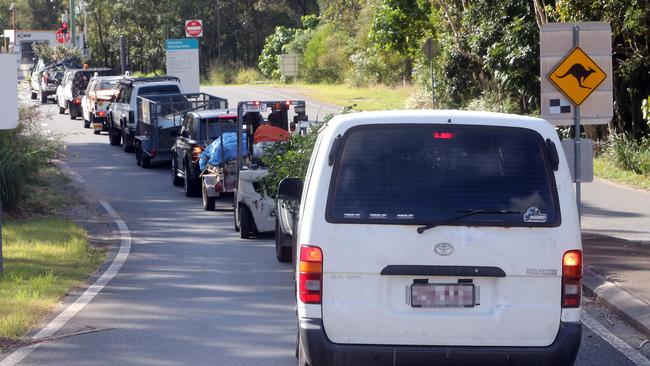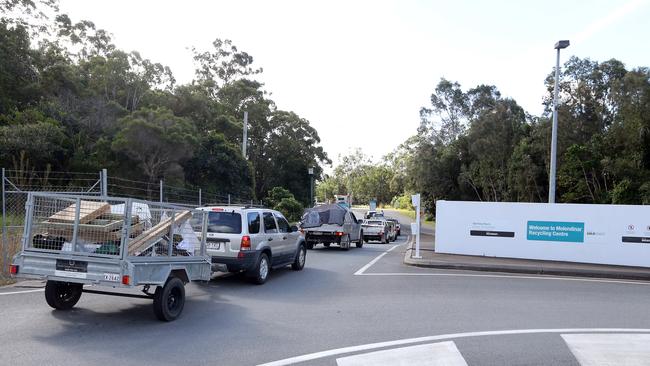Gold Coast ratepayers face a $138 million bill for waste as state reduce rebate
The Gold Coast is facing a monster black hole in its budget due to a State waste levy, forcing councillors to introduce rubbish tip gate fees or increase rate notice charges. FIND OUT MORE
Council
Don't miss out on the headlines from Council. Followed categories will be added to My News.
The City is facing a $138 million black hole in its budget due to a State waste levy, forcing Gold Coast councillors to introduce rubbish tip gate fees or increase rate notice charges.
The Bulletin has obtained emails from officers to councillors showing the City by 2030-31 will be paying an annual State waste levy of more than $40m.
The council currently receives a rebate that covers 85 per cent of those costs — but that buffer reduces to 20 per cent by 2030-31.
In the meantime, tonnage rates for waste will increase from 226,945 a year to 337,325.
This will see a total payment to the State across five years of $138 million.
“At this stage there is no official stance from the State Government regarding the rebate reduction past 2030-31, so we’re unable to comment on the longer term forecast at this stage,” officers said.
They warned that other states were increasing the waste levy which was an “indication of the path Queensland might take”.

At an earlier debate at the waste committee, Councillor Glenn Tozer said “this decision is one of the biggest we will make as a council”.
Mr Tozer said it was important to understand that City Waste could not take funding from other areas to meet costs and must be economically sustainable as a unit.
“That’s an obligation we have in running the waste business. This is profoundly different to anything else we do,” he said.
Residents and community leaders are divided, either agreeing to gate fees and a user pays system or wanting no increases due to cost-of-living pressures.
City Planning chair Mark Hammel said it was clear the council needed to do a better job of communication and education to help everyone understand the long-term economic burden of the increasing state government levy.
“One thing is clear — the waste model of the past cannot be the model of the future. It can’t sustain us environmentally or financially,” he said.
“Whether we implement new models or maintain current systems, the fact of the matter is the cost of waste management will continue to rise, affecting all ratepayers.
“In fact, no action will only increase the financial burden on council, and in turn ratepayers.”

Waste committee chair Shelley Curtis said the levy was introduced to force behaviour change by councils, the waste industry and the community towards diverting waste from landfill and increasing recycling.
“The City has been communicating the challenges of the increasing levy and the rising costs of sending waste to landfill for over five years,” she said.
“Now we’ve reached the point where we must consider a range of options to address the economic impact of building a viable modern waste industry.”
On the officer’s recommendations for tip fees, Ms Curtis said council had a legal and moral obligation to provide waste services which were environmentally and financially sustainable.
“I’m approaching Tuesday with an open and persuadable mind and look forward to achieving a resolution that meets those obligations and unifies our unique and diverse views on this critically important issue,” she said.





